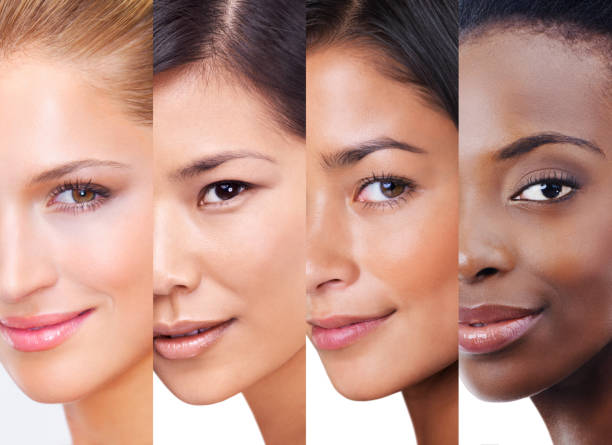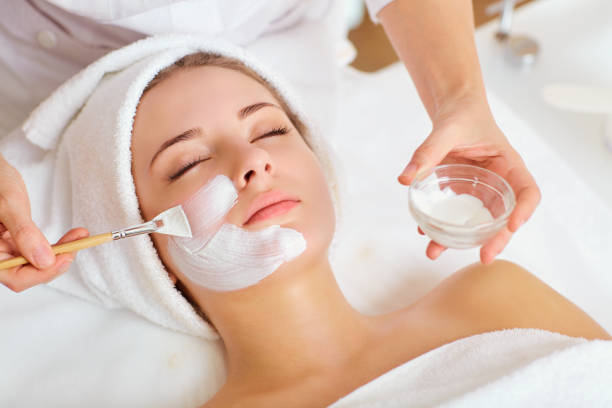A skincare ingredients check can feel like reading a foreign language if you don’t have Latin or chemical background. The International Nomenclature of Cosmetic Ingredients (INCI), however, is the name of this language and it was developed to assist create a consistent language of ingredient names that could be used on labels all around the world. And regrettably, it is not user-friendly.
Manufacturers will occasionally give the average consumer a break by including the more popular name in parenthesis next to the scientific name, as in the example below: tocopherol (vitamin E). However, without that prod, an ingredient list frequently just appears to be a collection of protracted unfamiliar terms separated by commas.
In the era of beauty influencers, it can be simpler to follow trends and choose skincare products (and components) with a cult following rather than conducting research. However, it’s not always the greatest option. There isn’t a skincare regimen that works for everyone. What works for your closest friend may not work for you, as dermatologist Jennifer David, MD, who specializes in cosmetic dermatology and skin of color dermatology, explains.
Finding skincare products with the best ingredients for your skin requires a personalized approach. It takes a little more time and perseverance to do this, but it’s worthwhile.
For your benefit, we consulted dermatologists to help make the procedure less frightening. With this knowledge at your disposal, you may shop with assurance and possibly prevent skin reactions while experimenting with new items in the future.
Identify your skin type.
Skin type is the most crucial component in selecting which skincare products would work best for you, claims cosmetic dermatologist Michele Green, MD. There aren’t inherently harmful products, but Dr. Green notes that occasionally people with different skin types use the wrong product for their type of skin.
The greatest extreme caution should be taken while using various substances in skincare products on those with sensitive and acne-prone skin. On the other side, oily skin can tolerate a larger variety of substances than other skin types can, which can occasionally cause breakouts or irritation.
Doctor recommends the following components for various skin types:
For oily skin, look for products with hyaluronic acid, benzoyl peroxide, and alpha hydroxy acids (salicylic or glycolic acid). According to Medical personnel, these substances are efficient in reducing excessive sebum production, whilst hyaluronic acid will only hydrate the regions that actually require it.
Look for products with shea butter and lactic acid for dry skin. According to Medical personnel, “These ingredients give moisture and gentle exfoliation to keep dry skin looking bright.”
Look for products like aloe vera, oatmeal, and shea butter if you have sensitive skin. According to Dr. Green, “They’re wonderful moisturizers and often don’t cause anyone to break out.”
A visit to the dermatologist to get a diagnosis is worthwhile if you’re unsure of your skin type. Once you are aware of your skin type, you may begin making more informed product choices.
Avoid falling for hype
According to Medical personnel, “packaging and popularity are occasionally simple traps and shouldn’t hold too much weight or significance into what we chose for our skin.” If you’re planning to purchase a product based on the advice of a friend or influencer, you should consider their prior skin condition as well as how their current skin looks.
You’ll get a more accurate indication of how effectively the product will serve you from there.
Cult favorites like the St. Ives Apricot Scrub and other Mario Badescu products have recently been the target of litigation from users who had some very severe adverse responses. There’s no need to freak out if you have any of these goods at home; this doesn’t necessarily indicate they’re harmful to everyone. The criticism that certain well-known skincare companies and products have received serves as a helpful reminder that just because something is popular doesn’t necessarily indicate that it is so for the right reasons or that it is the best product for you.
No matter how many nice ratings or stars the product has online, reading the ingredients list is still the wisest course of action.
Look for these components.
Medical personnel refers to glycerin as the foundation of moisturizing products.
Hyaluronic acid and ceramides are two key components that the skin naturally produces to retain moisture. Medical personnel claims that she loves hyaluronic acid in serum form and looks for glycerins and ceramides in creams and lotions.
Vitamin C, specifically the l-ascorbic acid form, is an antioxidant that helps to repair UV radiation damage and promote the formation of collagen.
Vitamin E, also known as tocopherol, is a powerful skincare pair that has effects comparable to those of vitamin C.
A crucial element to look for in products for your evening routine is retinol. It acts to activate collagen and renew skin cells.
Niacinamide (Vitamin B3) is a fantastic oil-controlling agent that also moisturizes the skin and evens out skin tone.
Steer clear of these substances
Fragrance/parfum: If you have sensitive skin, it’s especially crucial to avoid added perfumes as they might cause skin allergies and irritation.
Sulfates: Sulfates are cleaning chemicals that are frequently used in shampoo and body washes. They might irritate the skin and hair by removing their natural oils.
Products frequently contain parabens as a chemical preservative to stop bacterial growth. They’re referred to as estrogen mimickers by Dr. David and other industry experts, and they can be dangerous over time by upsetting hormonal balance. Both Drs. David and Green provide warnings that this could be dangerous for infants and those at risk for breast cancer.
Formaldehyde and formaldehyde releasers: Because formaldehyde is now recognized as a proven carcinogen, it is no longer commonly found in ingredient lists. However, according to Dr. David, it is frequently substituted with chemical preservatives that have various names (such as quaternium-15, DMDM hydantoin, diazolidinyl urea, and imidazolidinyl urea) and that release formaldehyde over time. Although it is unknown whether or not certain compounds are dangerous in this way, according to Dr. David, it is important to be aware of them as potential allergies.


